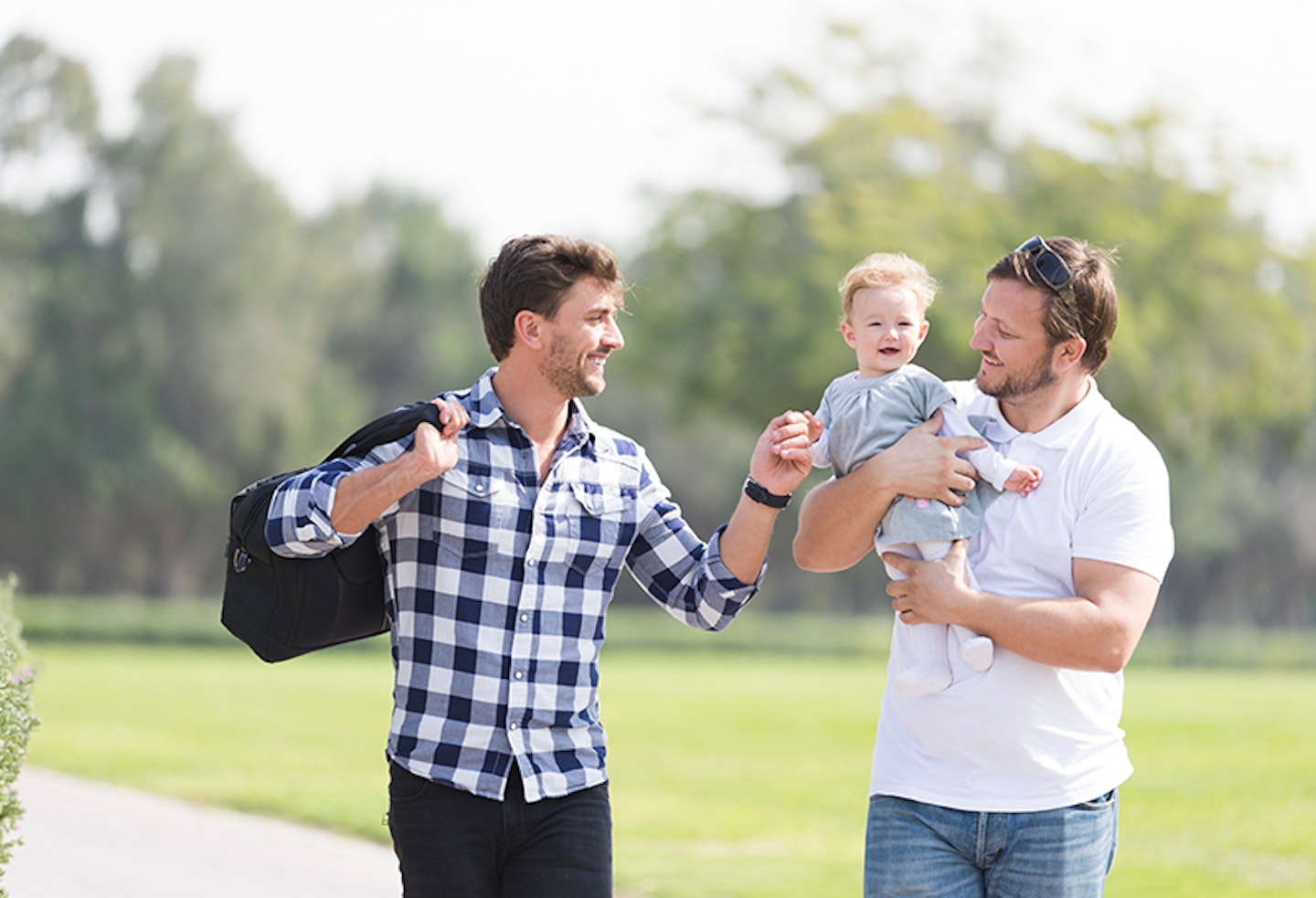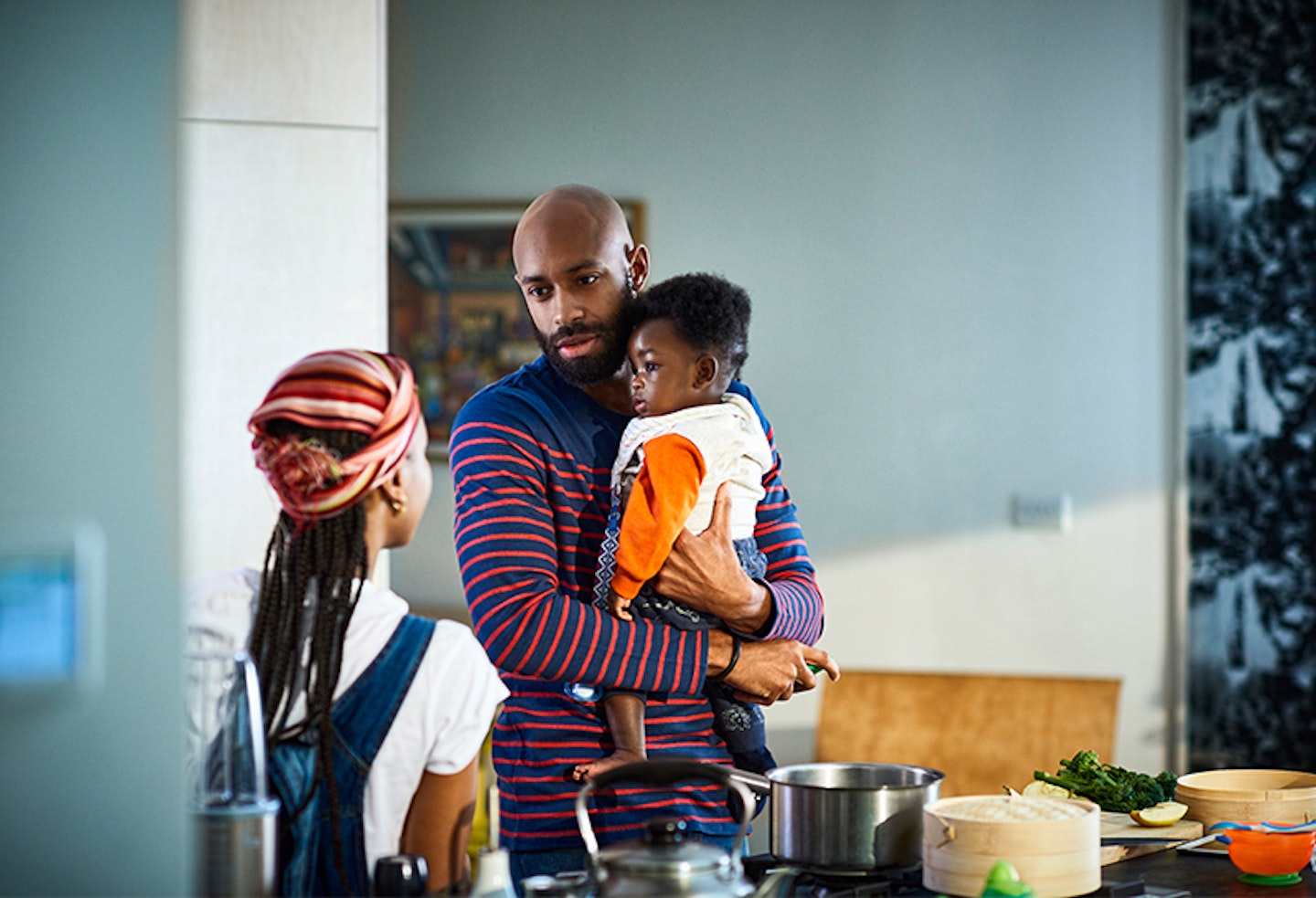When a relationship ends, especially one involving young children, it can be overwhelming to figure out the next steps. For many, learning how to co-parent can feel like an impossible task, filled with friction, emotion, conflict, and confusion. But according to coach and author Marcie Shaoul, it doesn't have to be that way.
Marcie, a certified coach with a background in conflict resolution and diplomacy, is also the author of The Co-Parenting Method: Six Steps to Raising Happy Kids After Separation and Divorce. She shares practical tools, honest advice, and her personal experience as a single parent to help ex-partners navigate how to co-parent in a way that centres the child and supports long-term family well-being.
We highly recommend reading the book, which breaks down practical tools and methods to help parents keep child-focused and avoid unhelpful confrontations. But here's an overview of Marcie's six-step method.
Step One: Embrace the long-term mindset
“Take a minute and just remember that this is a long-term thing,” says Marcie. “Even though you really might not want to do it, being able to reframe co-parenting as something you're doing for the next 20 years is really helpful.”
She encourages parents to pause, reflect, and ground themselves before making reactive decisions. “Put your kids at the centre, and start thinking about what you want the co-parenting dynamic to feel like for your family and how you're going to get there.”
Step Two: Managing strong emotions
Separation often brings up intense emotions, and it is so easy to type out a strongly worded text in the heat of the moment. We have all been there. But Marcie advises that you don’t react straight away. “Pause. Don’t respond immediately to that WhatsApp or email. Give your brain space before reacting, it makes a huge difference.”
She also stresses the importance of choosing your support system carefully. “Talk to someone you trust, but don’t talk in front of your kids, and avoid echo chambers. If someone’s just egging you on, it can reinforce conflict rather than help you move forward.”
Step Three: Setting boundaries
Even when things seem amicable, setting boundaries early is essential, even if you opt for a living arrangement where after a couple divorces or separates, the children stay in the family home, and the parents alternate living there when is their turn to take care of the children, which is known as magpie paretning.
“Some people separate and think they can keep things really flexible… and then a co-parent begins dating again or a new partner comes along and everything changes. Suddenly, no one knows where the lines are.”
Marcie recommends defining things like home privacy and communication limits from the outset. “You don’t have to be cold, just clear. Boundaries help everyone know where they stand, and that’s reassuring for kids.”
Step Four: Communicating without conflict
If you find yourselves constantly butting heads or animosity is high, Marcie suggests focusing on how you say things. “Be mindful of your language. Avoid phrases like ‘you always’ or ‘you never’. They’re accusatory and make people defensive. Try to stay neutral and listen, even if you think you know what your ex is going to say.”
And when you're feeling triggered, “take a breath, wait before replying, and try to reframe. Small tweaks can make a huge difference.”
Step Five: Making good co-parenting decisions
Parenting is full of decisions, and being separated doesn’t change that. “Find the thing you do agree on,” Marcie says. “Even if it’s small, build from there.”
She gives the example of screen time: “Maybe one of you wants to limit it, and the other is more relaxed. Ask yourself, what’s the principle behind it? Maybe you both want your child to practice piano or not have screen time before bed. Start from the shared value.”
Step Six: Beyond surviving to thriving
The final step in Marcie’s method focuses on resilience. “It’s not just bubble baths and walks in nature,” she laughs. “It’s about knowing what you can control, recognising the types of stress that come with co-parenting, and managing your energy so you can keep showing up for your child.”

Co-parenting if your ex has a new partner
Introducing any new partner into your child’s life can be tricky. Marcie acknowledges just how hard that part of co-parenting can be, especially when emotions like jealousy, mum rage, and resentment naturally come up. "It’s really difficult," she admits. "I’m not glossing over it because it’s really hard. I’ve been there."
But her advice is to return to the long-term goal: consistency and stability for your child. She says, "Ideally, what you want is a stable set-up, whether that’s you with a partner, or your ex with someone new. You don’t want people constantly coming and going in your child's life."
Even if you're not a fan of your ex's new partner, Marcie suggests thinking pragmatically: "Maybe it’s better that your child spends time with someone like 'Barbara', even if you don’t like 'Barbara' very much. If you’re alright with her, she’s more likely to be alright with you, and that makes everything easier for your child."
Of course, safety comes first. "If 'Barbara' isn’t alright with your child, then you have to speak up. That’s not about co-parenting, that’s about safeguarding."
Ultimately, the focus should remain on what your child needs most: consistency, emotional security, and a calm, steady home life. And in some cases, that may include embracing a blended family dynamic that provides stability, even if it's not the setup you originally imagined.

How do you tell your child about a new partner?
She advises keeping introductions slow, in neutral spaces. She says that places like parks are a great place to initially introduce your new partner to your child
“Ideally, tell your co-parent first and arrange a quick meet-up so your child doesn’t feel like they’re keeping secrets. It builds trust all around.”
“No one wants to think about their ex being happy,” Marcie admits. “But if you want stability for your child, sometimes you have to put your own feelings aside.”
How to talk to your child about separation
When it comes to discussing separation with children, honesty and simplicity are key. “Go small, go honest, and be age-appropriate. Always reinforce that it's not their fault, and keep reinforcing it, even years later.”
Marcie adds: “If you don’t know what the plan is yet, tell them that. Let them know you’ll keep them informed when you do. What they need is to feel safe and heard.”
What do you want for your future?
Marcie leaves us with a powerful reflection: “Ask yourself, what do you want your kids to say about how you co-parented them when they’re adults? Do you want them to say it was high conflict? Or do you want them to say, 'My parents did a good enough job'?”
Because for Marcie, that’s what co-parenting is all about, not being perfect, but being good enough, kind enough, and always putting the child at the centre.
About the author
Hannah Carroll is our Senior Digital Writer. In her capacity, she curates top-notch listicles, crafts insightful how-to guides, and delivers expert product reviews. As a mother of three, Hannah draws upon her comprehensive understanding of all facets of family life to bring true insight into all the products that make running a home easier.
